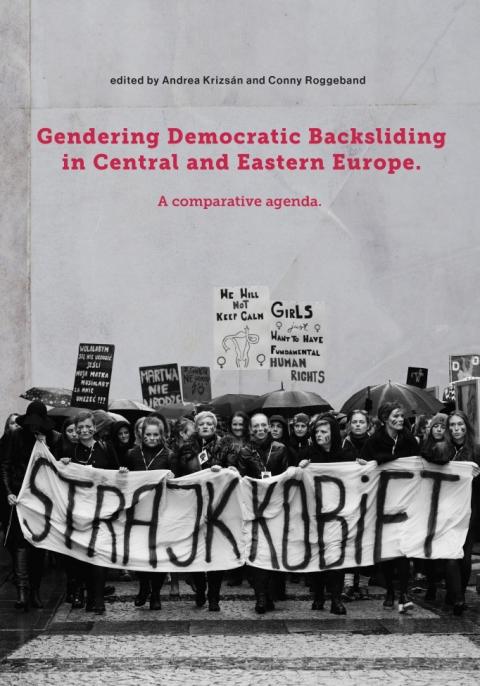Gendering Democratic Backsliding in Central and Eastern Europe. A comparative agenda
A new open access ebook has been published in the CPS Book series, edited by Andrea Krizsan (researcher at CEU CPS) and Conny Roggeband (lecturer at the Department of Political Science, University of Amsterdam).
Two decades after transition to democracy, countries in the Central Eastern European region are now experiencing democratic backsliding. De-democratization processes not only challenge democratic institutions but can also be seen as a form of cultural backlash against social and political changes that took place during the last decades. Gender and sexual orientation based equality is particularly hit: the cultural backlash translates to gendered processes of de-democratization. Attacks on gender equality and against actors standing for it are particularly widespread in countries of the Central and Eastern European region. This book aims to map gendered aspects of the decline in democracy in four countries in the Central and Eastern European region: Croatia, Hungary, Poland and Romania. We have a dual focus. First, we look at how processes of de-democratization affect previously established gender equality rights and what forms gender policy backsliding takes in the region. We are interested in learning how governments operate to block or reverse gender equality policies and what specific policy fields or issues are most under attack. Are policies actively removed or do we see more subtle dismantling strategies? Also, we ask if these dynamics and mechanisms are country specific or whether we can find similar patterns across countries? Second, we look at how these developments affect defenders and promotors of gender rights. How do women movements respond to these attacks? Do they change strategies? Do they falter in hostile conditions or we see resistance, maturing, diversifying coalition capacities? What do the anti-gender attacks and hostile states mean for movement capacities and strategies? Introduction provides a conceptual framework for the analysis. Separate chapters discuss gendered dynamics of de-democratization in the four countries.
The book is available here.

